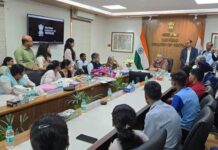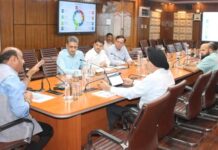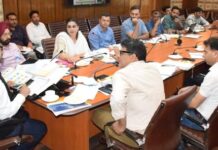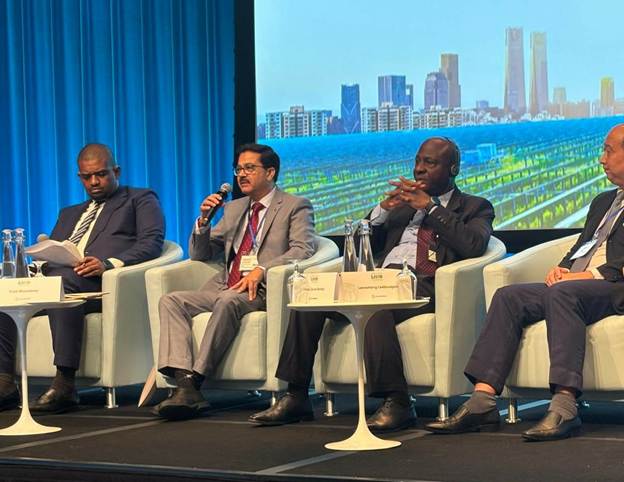MAY 07: India was in the spotlight at the World Bank Land Conference 2025 in Washington D.C., with the nation being honored as a “Country Champion” for its pioneering work in rural land governance. Representing India, Shri Vivek Bharadwaj, Secretary of the Ministry of Panchayati Raj, delivered a keynote during the high-level plenary session titled “Good Practices and Challenges in Land Tenure and Governance Reform.”
He detailed the impact of the SVAMITVA Scheme (Survey of Villages and Mapping with Improvised Technology in Village Areas), calling it a transformative program that blends cutting-edge technology with grassroots empowerment. With over 68,000 sq. km. of rural land mapped and assets worth $1.16 trillion unlocked, the initiative has provided legal land titles to millions in India’s villages, giving them access to credit, dignity, and development opportunities.
Shri Bharadwaj highlighted how the initiative tackled administrative and technical complexities, with States aligning laws and procedures, and the deployment of Continuously Operating Reference Stations (CORS) enabling precision mapping via drones. He also referenced economist Hernando de Soto, who emphasized the hidden value in untitled lands, aligning the SVAMITVA vision with global economic insights.
On May 7, a side event titled “Securing Land Rights for a Billion People” was held, where global delegates explored the replicability of India’s model in similar governance contexts. Moderated by World Bank experts Dr. Klaus Deininger and Mr. Somik V. Lall, the event featured case studies and success stories of ordinary citizens transforming their lives post-title acquisition.
Looking ahead, India will present Gram Manchitra on May 8—a GIS-based planning tool facilitating data-backed decision-making at the village level. Shri Alok Prem Nagar, Joint Secretary, Ministry of Panchayati Raj, will demonstrate its role in enhancing local governance.
India’s participation at the conference reinforces its position as a global leader in participatory, tech-enabled land reforms, serving as an inspiration for countries aiming to achieve SDG Target 1.4.2, ensuring land rights and security for all—especially the marginalized.


















